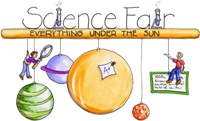

Toward Skeletal Regeneration
The Objective : To determine the effect of physiologic doses of three glucocorticoids on gene expression of bone formation markers Bone Morphogenic Protein-2 and Osteocalcin in osteogenic cells, via RT-PCR and mineralized cell counts. To determine if gene expression is related to corticoid receptor affinity and if the changes are biphasic.
Methods/Materials
Murine MC3T3-E1 cells were grown with hydrocortisone, prednisolone, or dexamethasone in growth media for 4 days. Cells were harvested at either 4 or 14 days.
Controls were run. mRNA was extracted,reverse transcribed,and amplified by PCR using primers for BMP2 and OCN, and for reference gene Rn18S.
PCR products were resolved by gel electrophoresis and bone nodules counted using microscopy. Relative intensities were compared for marker gene DNA expression, and cells counts were compared with Student's T-test to determine significance.
Results
In the BMP2 4 day group, the control showed greater gene expression than the corticoids, indicating that in the preconfluent preosteoblast stage corticoids downregulate BMP2.
In the 14 day BMP2 group, the corticoids showed increased expression over the control, indicating that in the mature osteoblast corticoids upregulate gene expression. The effect on BMP2 marker expression is seen to be biphasic.
In the 14 day OCN group, the corticoids caused upregulation of the marker expression over control. Mineralized cell counts supported the increase in bone formation when cells are exposed early in the preconfluent stage. Long term induction in the postconfluent mature cell reversed this effect.
Conclusions/Discussion
Corticoids affect marker gene expression for BMP2 and OCN in murine osteogenic cells, but these effects are biphasic and highly dependent on the stage of cell maturity as well as the length of drug exposure.
Interestingly, this does not completely correspond to receptor affinity alone, as the intermediate potency of PRED showed greater OCN induction than the more potent DEX. These findings have important application for future in vitro pharmacologic enhancement of autologous osteogenic cell therapy.
This project explored Therapeutic regeneration of bone will begin at the cellular level, and this project explores the positive and negative effects of corticoids on bone formation in osteogenic cells.
Science Fair Project done By Alyssa N. Cook
<<Back To Topics Page...................................................................................>>Next Topic
Related Projects :Summer Fashion Statement , Synthesis of Fluorescent Silica Nanoparticles , Taking Apart Water , Tasty or Deadly , The Dirt on Soap , The Mathematics of Sympathetic Vibrations , The Rhythm of Life , Toward Skeletal Regeneration , Try 'em All Tylenol , Use of Exothermic Reactions , UV Exposure Accelerates Telomere Shortening , Various Modern Chemical Hazards on the Taxis Behavior , Which Diameter String Has the Purest Tone , Wii vs. Real Life , Will a Guitar String Vibrate Forever
Copyright © www.kidsprojects.info 2012 through 2014
Designed & Developed by Freddy